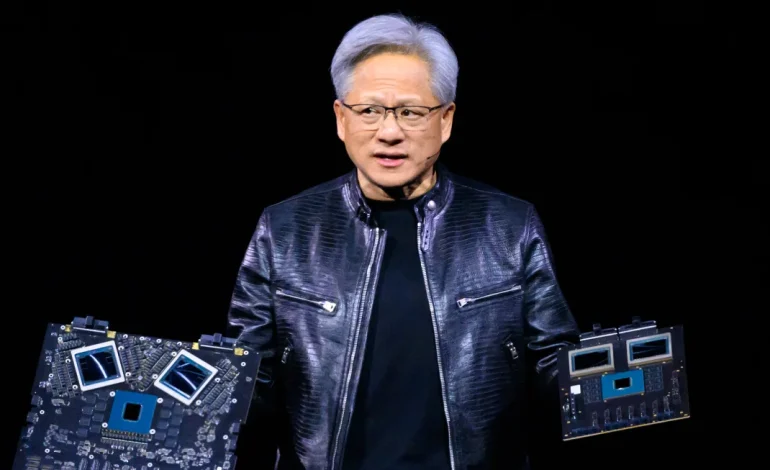Nvidia, a key player in the artificial intelligence (AI) revolution, has experienced a sharp decline in its stock value following a major market sell-off.
The company’s shares fell by 9.5% on Tuesday, leading to a record-breaking $279 billion loss in market capitalization, marking the largest single-day drop for any American company. This decline extended slightly into Wednesday, raising questions about whether this presents an opportunity for investors to “buy the dip.”
Nvidia’s stock had previously soared due to its dominant role in supplying AI chips, accounting for nearly 30% of the S&P 500’s returns in the first half of 2023. Even after the recent sell-off, the stock is still up 115% year-to-date. However, the recent downturn has made investors and analysts question the sustainability of its rapid growth.
Slower Growth Ahead?
Despite Nvidia’s blockbuster earnings last quarter, with revenue from its data center business up 154% year-over-year, growth has begun to decelerate. Analysts warn that the company, which has benefited from skyrocketing demand for AI chips, may face challenges in maintaining its previous growth rates. The concept of the “law of large numbers” is coming into play, as the company’s massive size makes future growth slower and harder to achieve at previous breakneck speeds.
Angelo Zino, a senior analyst at CFRA Research, pointed out that Nvidia’s valuation has declined from its historic highs, now trading at around 68 times its earnings per share, down from a P/E ratio of 180 last September. While Zino remains optimistic about the company’s long-term prospects, he advised caution due to the potential for reduced demand in the future.
Investor Concerns
Much of Nvidia’s sharp decline was driven by broader market concerns and a report that the US Department of Justice had issued a subpoena as part of an antitrust investigation. Although Nvidia denied receiving a subpoena, investor anxiety over potential legal issues has added uncertainty to the company’s future.
Adding to these concerns, a note from J.P. Morgan’s Michael Cembalest raised doubts about whether major tech companies like Google, Amazon, and Microsoft will see adequate returns on their AI investments. This skepticism has impacted Nvidia, given its reliance on AI for revenue growth.
Long-Term Outlook: A Buying Opportunity?
Despite the current challenges, Nvidia continues to be viewed as a leader in the AI chip market, holding more than 80% of the data center AI chip sector. Bulls, like Wedbush’s Dan Ives, argue that the recent decline represents a buying opportunity, with Nvidia’s chips becoming increasingly essential in the global technology landscape.
CEO Jensen Huang remains confident, citing continued strong demand for Nvidia’s latest AI chips. While growth may slow, the overall AI market is expected to expand significantly in the coming years, suggesting that Nvidia is well-positioned to benefit in the long run.









